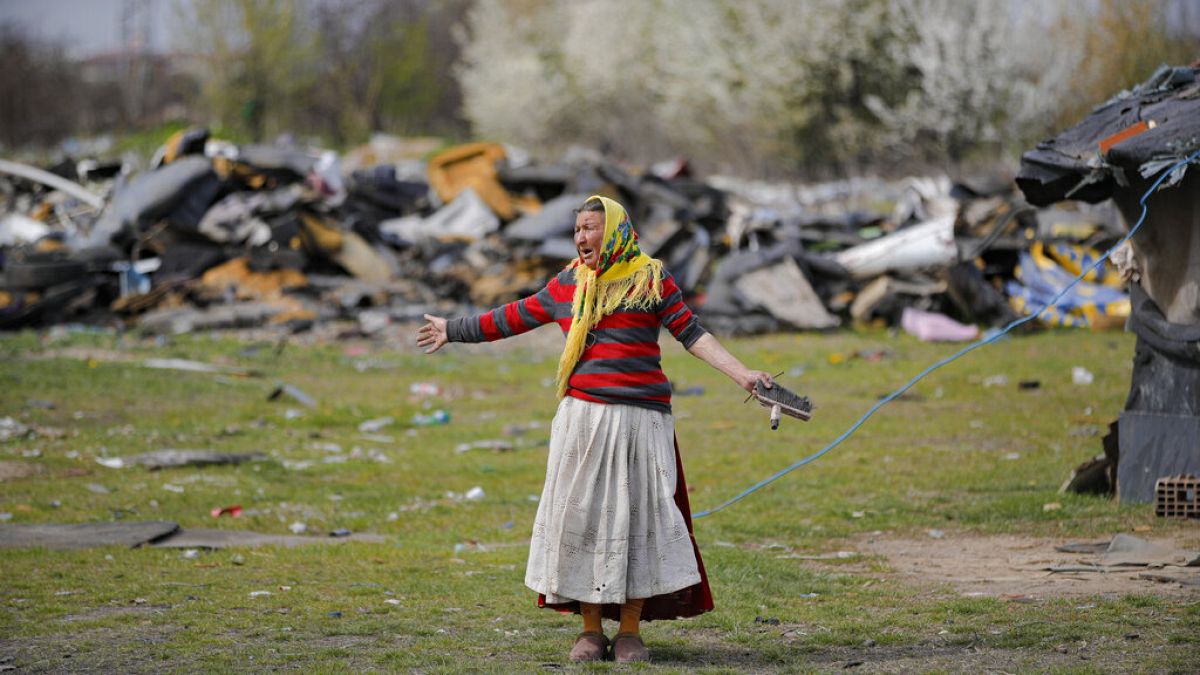Marginalised groups like the Roma people are disproportionately affected by climate change. They have to be included in the response, not harmed by it, writes the Open Society Foundations' Zeljko Jovanovic
As leaders from the Global North meet at COP26 to discuss solutions to climate change, they must ensure that the poorest communities in Europe are not left behind either.
If vulnerable people perceive environmental measures to be a further burden on their already difficult lives, populists and the far right will take advantage of their grievances - and in turn undermine the Paris Agreement.
Many Europeans, particularly in underdeveloped regions such as Spain’s Andalusia, eastern Slovakia, southern Italy and eastern Germany feel anger, resentment, mistrust and fear due to inequality. The Yellow Vest movement is just one of many expressions of anger by these populations.
The Roma people: a case study in marginalisation
To better understand the vulnerable in the Global North, we should look at the situation of the Roma people, who endure conditions that remain far removed not just from the majority, but in conditions that more resemble those of low-income countries.
Ten per cent of the Roma people live without access to electricity: twice as many as in North Africa and West Asia. Thirty per cent have no access to clean water in their homes, which is in line with the situation in Central and Southern Asia. Forty-five per cent have no access to sanitation facilities at home.
At the same time, 43 per cent of Roma people in employment live on less than $1.90 a day, while 63 per cent are not in education or employment, a higher proportion than in some of the world’s poorest countries.
Already living on society’s margins, their lives will be made even more difficult as they are on the front line of climate change, with flooding, drought and heatwaves directly affecting their access to clean drinking water, food and energy supplies.
At the same time, they have to cope with unjust climate policies that disproportionately impact them.
In North Macedonia, Roma who work as informal waste collectors selling recovered plastic and cardboard have found their livelihoods criminalized.
Overnight, a source of income away has been taken away from families who have relied on it for years. In the absence of other work, many feel compelled to continue collecting, despite the legal restrictions, low income, and health risks.
The Roma people have been left behind as collateral damage of previous transitions - from communism to a market economy in Eastern Europe, from the 2008 financial crisis to recovery - and they have suffered disproportionately from serious illness and economic disruption in the pandemic.
All the failed promises, such as national Roma-oriented policies and the funding they would bring, have created widespread disappointment, despair and anger among the Roma people, and left them with no real voice in the political system.
Sidelining the vulnerable plays into populists' hands
Europe’s right-wing and far-right politicians have already shown how they can manipulate anger among the majority and weaponize prejudice against the Roma.
This has already been seen in Bulgaria, Hungary and Slovakia, where the largest and poorest Roma populations live, but also in Italy, where popular prejudice against the miniscule Roma population of 0.25 per cent was high enough to help Silvio Berlusconi and Matteo Salvini lead governments.
Populists and the far-right operate in a similar vein in France, Germany, the Netherlands, the United Kingdom and the United States. They turn the public’s fear not only against vulnerable populations but also against the EU, COVID-19 vaccines and the multilateralism on which the Paris Agreement rests.
There is no shortage of ideas for solutions. But the political will to make them reality fast enough to make a difference is lacking.
The EU’s Green Deal might be a good basis for a so-called just transition, but its focus should expand from carbon-intense sectors to inequality-intense sectors.
Similarly, the EU's housing renovation program for increasing energy efficiency should also target the Roma homes that are substandard and often have not been legalized.
For the Paris Agreement to make a difference on an international scale, its proponents must not assume that vulnerable populations in the Global North have a voice and fair opportunities by virtue of their citizenship.
Moreover, people suffering inequality across the globe should not be forced to compete against one another; on the contrary, the threat of a climate crisis and the impact of political decisions on them means we have not only an opportunity, but a necessity, to bring their voices together.
Zeljko Jovanovic is director of the Open Society Foundations' Roma Initiatives Office, a board chair of the European Roma Institute for Arts and Culture and a member of the European Council on Foreign Relations.


